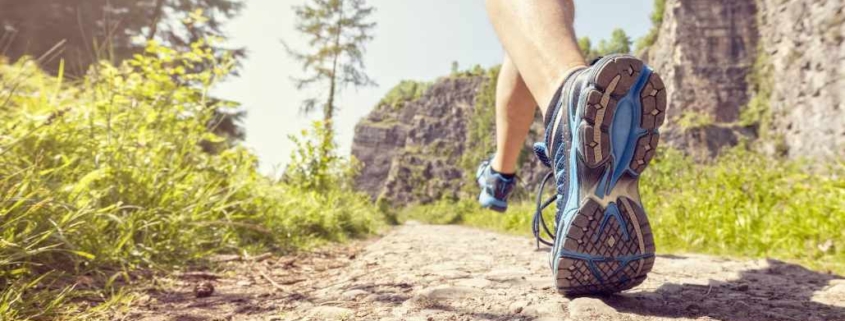How to Battle Alcohol Cravings in Recovery
Table of Contents
In recovery, one of the most difficult beasts to tame is that of alcohol cravings. You may have been equipped with a variety of coping tools while in treatment. You might belong to a recovery community and have plenty of support. You might still engage in outpatient therapy sessions. Even with all of those reinforcements, battling alcohol cravings in recovery may remain an ongoing challenge.
Understanding the Addiction Cycle
According to the Surgeon General, addiction “is associated with changes in the function of brain circuits.” Chronic use of alcohol produces the dopamine rush, which results in the brain’s reward system being trained to require it. This is a gradual process.
The reward system and its neurotransmitters slowly adapt to the presence of the alcohol, reinforcing the desire to continue drinking. Over time, the person feels compelled to seek and use the substance, despite the harm it may be doing to them. It is when the substance use becomes compulsive that alcohol addiction has developed.
The addiction cycle begins with the desire or craving to seek and obtain the alcohol. Once they have the alcohol, they drink to satisfy the craving or to avoid withdrawal symptoms. After the effects of the alcohol wear off, the withdrawal symptoms prompt the person to seek more alcohol. The cycle repeats.
What Causes Alcohol Cravings?
Understand that the addiction cycle is the result of altered brain pathways that now hold you captive to a substance. Knowing this, it is easier to see how a cue or trigger might set off the cravings for alcohol. Your brain already anticipates the need for the alcohol, so when someone in recovery encounters a trigger, cravings take over.
Why is this? The brain has become dependent on the presence of alcohol. In fact, in an alcoholic, the brain regulates itself by having alcohol in the system. That is the only way normal functioning can occur, once someone is addicted or dependent on alcohol.
It takes a long time for the brain to recover from alcoholism. As recovery continues, the cravings become less frequent or demanding. Still, alcohol cravings can reignite during a stressful time, such as during an adverse life event. Alcohol is remembered as almost like a medicine, something that will soothe your troubles.
However, memories of drinking usually only focus on the relaxing effects, thus romanticizing addiction. This can spark alcohol cravings because the memories tend to block all the mayhem that was caused during active addiction.
Other Warning Signs of Relapse
Cravings are just one of the signs that a relapse may be impending. Some of the other warning signs of alcohol relapse include:
- Secretive behavior.
- Avoiding meetings and sponsor stops working the steps.
- Canceling appointments with a therapist.
- Isolating behaviors.
- Moodiness.
- Avoiding responsibilities.
- Neglecting self-care.
- Stops exercising.
- They place themselves in situations where there is drinking present.
- Symptoms of depression or anxiety.
- Lying or deceptive behaviors.
Relapse unfolds in three stages:
Emotional. Your emotions can be powerful triggers for relapse. This may begin with a setback, such as the loss of a job or a relationship breakup. This stirs up feelings of sadness, anger, loneliness, and other negative emotions.
Mental. When emotions are not managed, it can cause the mind to start thinking about drinking, even making a plan. Cravings are common at this stage.
Physical. This final step involves taking the steps to obtain the alcohol and seek an opportunity to drink.
8 Ways to Combat Alcohol Cravings in Recovery and Avoid Relapse
Thankfully, there are actions to take that can override the cravings. Here are 8 effective ways to battle alcohol cravings:
- Get to a meeting. A.A. or SMART Recovery provides a safe space to ask for support when you feel a relapse sneaking up. During this period, the more meetings you attend, the better.
- Engage in physical activity. Exercise is a great way to ward off a relapse, as it causes your brain to produce endorphins. These chemicals improve your mood, almost like a natural antidepressant.
- Distract yourself. Feeling cravings coming on? Immerse yourself in a DIY home project or a favorite hobby, go see a baseball game, or visit a friend. Distract yourself from the cravings and ride it out.
- Practice self-care. Stress is a common trigger for cravings and relapse. To stay one step ahead of stress, make sure you include regular self-care in your schedule. Practice meditation, take a yoga class, or get a massage to better manage stress.
- Volunteer. One of the most effective ways to avoid relapse is to offer your help to others. You can volunteer to help out at A.A. meetings, or even become a sponsor. Also, there are plenty of ways to offer your time in the community.
- Focus on your career. Distract yourself from temptations by learning a new career skill. Improve your earning potential and avoid relapse at the same time. Set a new career goal and then take a class at the local college or sign up for a training program.
- Improve sleep quality. Getting a good night’s sleep on a regular basis is essential for maintaining a positive attitude, which then reinforces recovery. Maintain a daily sleep schedule so your body clock becomes stable, and avoid caffeine late in the day.
- Change your diet. Science tells us that a healthy diet is good for our mental state. Avoid processed foods and sugary sweets and drinks. Focus on eating a Mediterranean diet, which is high in omega-3 fatty acids and has many positive health effects.
Alcohol cravings are simply part of the recovery experience. The challenge is how to overcome them and avoid a relapse. If you are struggling with cravings, be sure to reach out for support.
Annandale Behavioral Health
California Treatment for Alcohol Use Disorder
Annandale Behavioral Health offers a well-rounded recovery program for individuals wanting to break the grip of alcoholism. If alcohol cravings threaten your recovery, or if you have relapsed, we are here to help. Reach out today at (855) 778-8668







